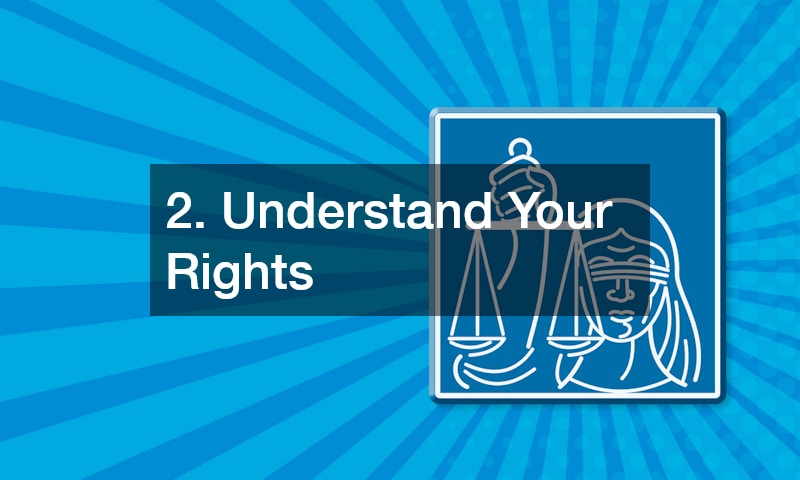Getting arrested for DUI can be an overwhelming experience. Fear, confusion, and uncertainty often take over as soon as law enforcement approaches you. However, knowing the right steps to take immediately after a DUI arrest can make a significant difference in how your case unfolds. The following guide walks you through what to do, step by step, to protect yourself, your rights, and your future.
1. Stay Calm and Assess the Situation
The first step after any DUI arrest is to stay calm. Panic or aggression can only make the situation worse. Take deep breaths and remind yourself that staying composed is essential. Law enforcement officers are trained to observe behavior, and showing agitation may inadvertently complicate things.
While it’s natural to feel anxious, try to focus on observing the situation clearly. Take note of the officers’ instructions and comply respectfully. Your attitude during the arrest can influence how the rest of the process goes, including how officers document the interaction. Remember, staying calm is not just about being polite—it’s about giving yourself the best chance to handle the situation strategically.
If you have been detained or asked to perform tests, make sure you understand what is happening. You don’t need to answer every question on the spot, but listening carefully and staying composed allows you to make better decisions later.
2. Understand Your Rights

Knowing your rights during a DUI arrest is crucial. For instance, you have the right to remain silent and avoid making statements that could be used against you. You also have the right to request an attorney before answering certain questions. Understanding these rights can protect you from unintended legal consequences and prevent missteps that might affect your case.
It’s also important to recognize what police can and cannot do. For example, you may be required to comply with sobriety tests, but there are limits to searches and seizures without a warrant. Being aware of these boundaries helps you act confidently and avoid unnecessary complications.
If possible, reach out to a criminal lawyer as soon as you can. Even a brief consultation can clarify what you should and shouldn’t do, provide guidance on the legal process, and ensure you’re taking steps that protect your interests. Taking a few moments to mentally note your rights and seek professional guidance can reduce stress and prevent accidental missteps. Being informed is your first line of defense.
3. Arrange Bail Quickly
One of the most practical steps after a DUI arrest is to arrange for bail as soon as possible. Getting released promptly allows you to start preparing your defense, meet with legal counsel, and handle personal matters without being confined. Depending on your jurisdiction, bail procedures may vary, but the goal is the same: secure release efficiently.
While arranging bail, it can be helpful to have someone you trust available to assist. This could include family, friends, or a trusted legal contact. Many jurisdictions offer 24 hr bail bonds, which can make it possible to secure release at any time, even outside regular business hours. Knowing about these options ahead of time can save you unnecessary stress and delays.
Additionally, coordinating with experienced DUI lawyers can help ensure the bail process goes smoothly. They often have knowledge of local procedures and contacts, which can speed up the process and provide guidance on next steps once you are out. Working with professionals ensures that your release is handled efficiently, letting you focus on building a strong legal defense.
4. Contact a Criminal Defense Lawyer

Once you are out of custody, contacting a criminal defense attorney should be your top priority. A skilled attorney can guide you through the legal process, explain your rights, and help you build a strategy for your case. Even if you believe the charges are minor, having professional legal support is invaluable. Early contact ensures you make informed decisions rather than reacting out of stress or confusion.
A criminal defense lawyer can also help you navigate court dates, paperwork, and communication with prosecutors. This guidance is particularly important for first-time offenders, as mistakes made early in the process can have lasting consequences. Many people also seek advice from the best criminal lawyers in their area to ensure their case is handled with the highest level of expertise and professionalism. Consulting top legal professionals gives you peace of mind and a stronger foundation for your defense.
5. Notify Family or Trusted Contacts
After a DUI arrest, it’s important to inform someone you trust. This could be a family member, close friend, or another trusted contact. Letting someone know ensures you have support, assistance with logistics, and someone to help monitor your legal process.
Communicating quickly with a trusted contact also reduces the chances of misunderstandings or miscommunication. For example, someone can help arrange transportation, provide financial assistance for bail, or simply be there to offer emotional support. Handling this step early ensures you are not navigating the aftermath of the arrest alone.
6. Gather Important Information
Once you are able, start gathering all the important information related to your arrest. This includes details like the arrest report, officer notes, court dates, and any documentation you received. Having this information on hand will help you and your lawyer evaluate your situation more accurately and develop a clear strategy for your defense.
You should also collect witness statements or other supporting evidence that may be relevant to your case. Photos, videos, or even observations from friends or passengers can sometimes provide crucial context. Organized records will make it easier to track deadlines, plan your defense, and ensure no important details are overlooked. Consulting with local attorneys can also help you identify which pieces of information are most critical to your case, ensuring nothing important is missed.
Moreover, keeping track of any communication with law enforcement or the court can prevent confusion later. Maintaining a simple folder or digital record can save you significant time and stress in the long run, making it easier to coordinate with your legal team.
7. Understand Probation or Court Requirements
If you are released on bail or placed on probation, it’s critical to understand your responsibilities. Probation requirements can include regular check-ins, avoiding certain activities, or completing programs. Failing to meet these obligations can result in serious probation violations, which may lead to additional penalties or even jail time. Being proactive and organized can help you avoid these consequences.
Similarly, court requirements may involve attending hearings, submitting documents, or complying with specific conditions. Missing deadlines or violating rules, even unintentionally, can negatively impact your case. Consulting with experienced criminal DUI lawyers can help you fully understand these requirements, ensure compliance, and provide guidance on handling any challenges that may arise. Taking these steps early can prevent small mistakes from becoming major setbacks.
8. Avoid Making Statements Without Legal Counsel
It may be tempting to explain your side of the story to law enforcement or others, but this can backfire. Statements made without guidance from lawyers can be misinterpreted, misquoted, or used against you in court. It’s always safer to consult your attorney before providing any detailed explanation.
Even casual conversations with people who are connected to the case should be approached cautiously. Social media posts, text messages, or casual remarks can sometimes be used as evidence. Being mindful of your words and reserving statements for legal counsel protects you from unintended consequences and helps your attorney develop a strong defense strategy.
9. Document the Incident and Stay Organized
Keeping detailed records of everything related to your DUI arrest is crucial. Write down the sequence of events while they are fresh in your memory. Include details such as the time and location of the arrest, the names and badge numbers of officers involved, and any interactions you had with law enforcement. This kind of documentation can be valuable when your attorney is preparing your defense.
It’s also helpful to organize all paperwork in one place. This can include your arrest report, bail documents, court notices, and any correspondence with your lawyer or the court. Using a dedicated folder—physical or digital—ensures you don’t misplace important documents and can easily access them when needed.
In addition, note any witnesses or evidence that might support your case. For instance, passengers, bystanders, or dashcam footage could provide context that may help your defense. Staying organized and thorough shows diligence and can make your attorney’s job much more effective.
10. Plan for Your Court Appearance

After a DUI arrest, your next major step will often be attending court hearings. Planning ahead for your court appearance can make the process less stressful and help you present yourself responsibly. Start by marking all court dates on a calendar, setting reminders, and arranging transportation so you arrive on time. Being proactive ensures you won’t be caught off guard and allows you to focus on your defense.
Consider what to bring with you as well. This can include documents related to your arrest, identification, and any paperwork your criminal defense lawyer has advised you to have. Dressing appropriately and behaving respectfully in court also contributes to making a good impression with judges and court personnel.
Lastly, coordinate closely with your attorney about what to expect during your hearing. Ask questions about the procedures, potential outcomes, and any documentation or evidence that may strengthen your case. Being prepared can reduce anxiety and help you approach your court appearance confidently rather than reactively, giving your legal team the best chance to represent you effectively.
Understanding the Long-Term Consequences of a DUI
A DUI arrest doesn’t just affect you in the short term—it can have lasting effects on your life. Beyond fines and potential jail time, a DUI can impact your driving record, insurance rates, employment opportunities, and even travel plans in some cases. Knowing the possible long-term outcomes can help you take proactive steps to protect yourself.
For instance, some states may impose license suspension periods or require completion of alcohol education programs. Being aware of these consequences allows you to plan ahead and work with your attorney to minimize the long-term impact. Even if you believe the charges are minor, taking them seriously early on is essential for avoiding further complications down the road.
Exploring Alternative Sentencing and Rehabilitation Programs
Depending on your case, courts may offer alternative sentencing options, such as community service, probation programs, alcohol education, or rehabilitation. Participating in these programs can sometimes reduce penalties and demonstrate your commitment to responsible behavior.
Consulting your lawyer about these options is important. A legal professional can advise which programs are available in your jurisdiction and how participation may influence the court’s decisions. Taking advantage of alternative sentencing opportunities can also show judges that you are taking the arrest seriously and proactively working to prevent future incidents.
Preventing Future DUIs: Safety and Responsibility

While much of the focus after a DUI arrest is on legal matters, preventing future incidents is just as important. Taking proactive steps to avoid driving under the influence can protect your safety, your finances, and your reputation. Developing responsible habits now can also reduce the risk of repeat offenses, which often carry harsher penalties and long-term consequences.
Understanding the risks associated with impaired driving is the first step. Alcohol and certain medications can significantly reduce reaction time, impair judgment, and increase the likelihood of accidents. Even a small lapse in judgment can lead to another arrest or serious injury. By being proactive, you’re not only protecting yourself but also the lives of others on the road.
Here are some practical strategies to prevent future DUIs:
- Designate a sober driver: Plan ahead when going out, and assign a friend or family member to stay sober and drive.
- Use ride-sharing or taxi services: Apps like Uber or Lyft can provide safe alternatives if you’ve been drinking.
- Monitor alcohol consumption: Keep track of how much you drink and know your limits; pacing yourself can help you avoid risky situations.
- Avoid combining substances: Never mix alcohol with prescription or recreational drugs, as this greatly increases impairment.
- Stay informed about legal limits: Know the blood alcohol concentration (BAC) laws in your state and be aware that even small amounts can be considered illegal.
- Plan overnight stays: If you plan to drink heavily at social events, consider staying overnight nearby instead of driving home.
- Participate in alcohol education programs: Voluntary classes can reinforce responsible drinking habits and demonstrate commitment to preventing future offenses.
Incorporating these habits into your lifestyle does more than keep you out of legal trouble—it also helps rebuild trust with family, friends, and the broader community after a DUI arrest. Small, consistent actions can have a big impact on your long-term safety and peace of mind.
In Summary
A DUI arrest is a serious matter, but knowing the right steps to take immediately—and understanding the bigger picture—can make a significant difference in the outcome. Staying calm, understanding your rights, arranging bail, and contacting a criminal defense lawyer are essential first steps. Equally important is notifying trusted contacts, gathering important information, understanding probation or court requirements, and avoiding statements without legal guidance.
Beyond the immediate aftermath, it’s important to be aware of the long-term consequences of a DUI, explore alternative sentencing or rehabilitation programs, and take steps to prevent future incidents. Planning for court appearances, documenting everything carefully, and adopting safe driving habits can reduce stress, protect your legal standing, and demonstrate responsibility to the court and your community.
Taking these actions does more than help protect you legally—it gives you control in a situation that can otherwise feel overwhelming and chaotic. By staying proactive, informed, and committed to safe choices, you increase your chances of a favorable outcome and set yourself on a path toward responsible, long-term decision-making.
